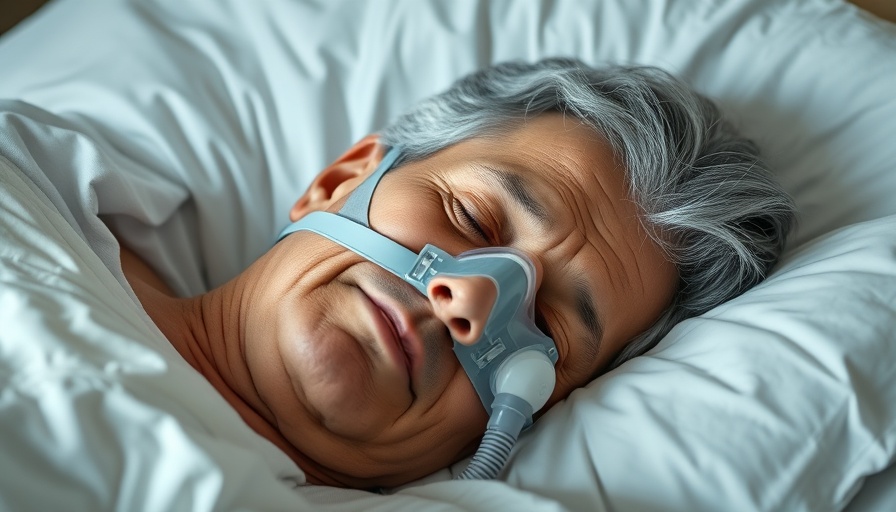
Understanding Parkinson's Disease and Sleep Challenges
For families dealing with Parkinson's disease, the challenges extend beyond motor symptoms. Many patients also face significant sleep disorders, including insomnia and disrupted sleep cycles. This dual struggle can affect not just the sleep health of the individual but also the overall family dynamic. Children and caregivers may find themselves grappling with the emotional and physical toll that sleep deprivation takes on their loved ones.
How Can CPAP Therapy Help?
Continuous Positive Airway Pressure (CPAP) therapy is commonly used to treat sleep apnea—a condition that affects many Parkinson’s patients. Sleep apnea can lead to poor sleep quality and shorter sleep duration, exacerbating symptoms of sleep deprivation. CPAP devices work by keeping the airway open, allowing for a more restful sleep, which is essential for both physical and mental health.
The Connection Between Sleep and Parkinson’s Disease
Recent sleep studies indicate that there is a complex relationship between sleep disorders and Parkinson’s disease. The circadian rhythm, which regulates our sleep-wake cycle, can be disrupted in individuals with Parkinson's. This disruption can lead to increased episodes of insomnia and a tendency to experience more severe symptoms related to the disease. Understanding this connection is pivotal for families navigating their loved one's Parkinson’s journey.
Sleep Hygiene and Routine for Parkinson’s Patients
Creating a conducive sleep environment is vital. Families can work together to establish bedtime routines that foster good sleep hygiene. This includes maintaining a consistent sleep schedule, minimizing electronic use before bed, and creating a comfortable sleeping environment with the right temperature and lighting. Simple practices can make a significant difference in sleep quality.
Exploring Traditional and Modern Sleep Solutions
In various cultures, traditional sleep practices—combined with modern technology—can provide unique insights into improving sleep health. Approaches like meditation, yoga, and herbal remedies can all play a role in enhancing overall sleep quality, especially when integrated with professional support from sleep specialists. Families may find that a mixed approach works best for their loved ones.
Benefits of Improved Sleep for Patients and Families
When sleep quality improves, it not only enhances the well-being of the patient but also positively affects family dynamics. Better sleep can lead to reduced anxiety and improved mood, allowing families to engage in more meaningful interactions. Moreover, practicing good sleep can enhance cognitive functions and memory, benefitting both patients and their caregivers.
Actionable Insights: What Can Families Do?
Families can take proactive steps by educating themselves about sleep disorders and exploring treatment options like CPAP therapy. Engaging with healthcare professionals who specialize in sleep medicine can lead to tailored solutions that meet individual needs, enhancing both sleep health and overall quality of life.
Call to Action
If you are a caregiver or family member of someone with Parkinson’s disease, consider reaching out to a sleep specialist or exploring CPAP therapy options. Together, you can navigate the complexities of sleep challenges and improve the quality of life for your loved ones.
 Add Row
Add Row  Add
Add 




 Add Row
Add Row  Add
Add
Write A Comment